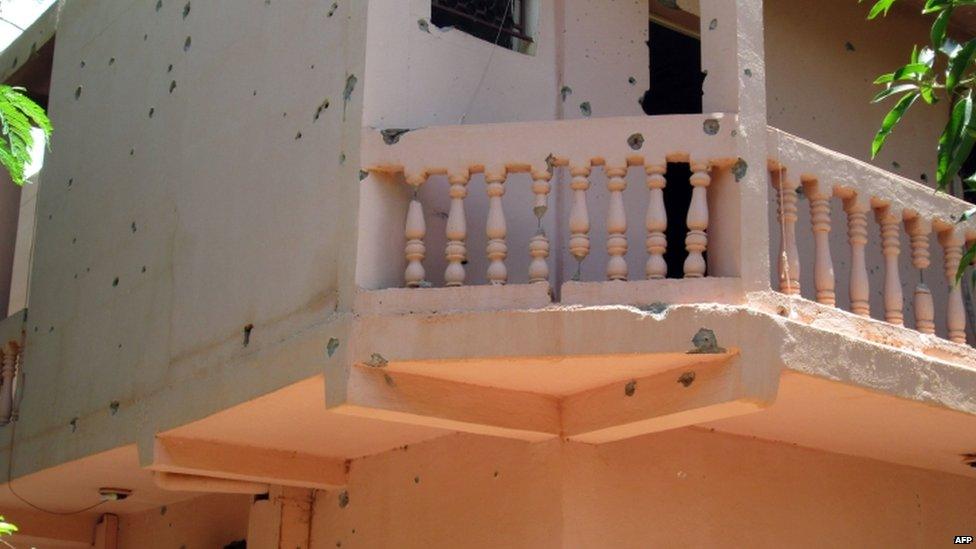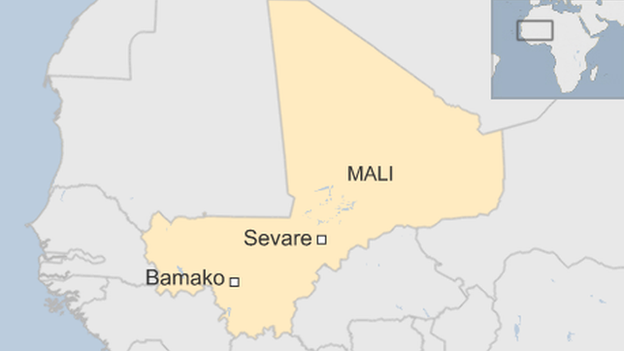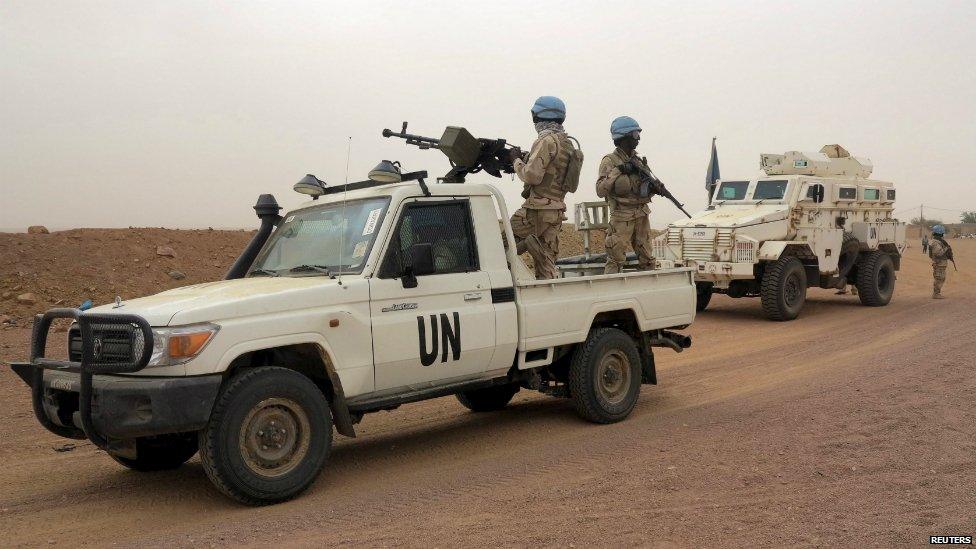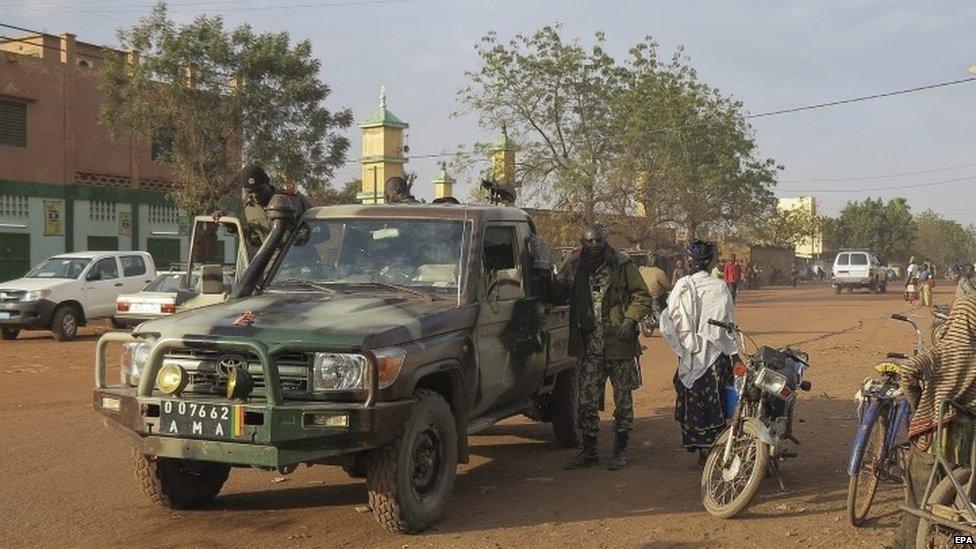Mali hotel siege: Several killed in Sevare, four UN workers saved
- Published

Bullet holes show the exchange of fire at the Byblos Hotel
At least 13 people are thought to have been killed, including five UN workers, in a hostage siege at a hotel in the central Malian town of Sevare.
A further four UN workers survived by hiding in cupboards for almost 24 hours as the attack unfolded.
The suspected Islamist gunmen had retreated to the hotel after attacking a nearby army base.
The siege was ended after government troops stormed the building early on Saturday.
No group has said it carried out the attack.
Four of the gunmen are dead and seven have been arrested, while four Malian soldiers were said to have been killed in the attack and eight wounded.

Minusma, the United Nations' mission in Mali, said in a statement, external that two Ukrainians, a Nepalese, a South African and a Malian died in the siege.
The four that walked out alive had kept in touch with the outside world on their mobile phones.
The gunmen burst into the Byblos Hotel early on Friday, sparking fierce exchanges of gunfire with the army who soon surrounded the building.
Mali has been fighting Islamist rebels in the north for a number of years.
In recent months Islamist militants have shifted their attention from the north of Mali, where French and UN peacekeepers are stationed, to the south and centre of the country, says the BBC's Alex Duval Smith in the capital, Bamako.

UN troops took over responsibility for security in Mali after France's intervention in 2013

There is a military presence in Sevare, but the town has not seen fighting before
Sevare, which is about 600km (370 miles) north-east of Bamako, is a trading hub that serves the historic riverside city of Mopti.
A local resident told the BBC on Friday that it was the first time the town has faced an attack like this.
"Since the beginning of the fighting in Mali, we haven't experienced such a situation in Sevare."
"We would expect these things to happen in Gao or Timbuktu, but this is the first time it has happened in Sevare," he said.
The UN force in Mali took over responsibility for security in the country from French troops in July 2013.
France, the former colonial power in Mali, intervened in the country after Islamist militants threatened to march on Bamako in January 2013.

Militancy in Mali

October 2011: Ethnic Tuaregs launch rebellion after returning with arms from Libya
March 2012: Army coup over government's handling of rebellion
April 2012: Tuareg and al-Qaeda-linked fighters seize control of north
June 2012: Islamist groups capture Timbuktu, Kidal and Gao from Tuaregs, start to destroy Muslim shrines and manuscripts and impose Sharia
January 2013: Islamist fighters capture a central town, raising fears they could reach Bamako. Mali requests French help
July 2013: UN force, now totalling about 9,750, takes over responsibility for securing the north after Islamists routed from towns
July 2014: France launches an operation in the Sahel to stem emergence of jihadist groups
2015: Sporadic attacks continue in desert area of northern Mali, blamed on Tuareg and Islamist groups.